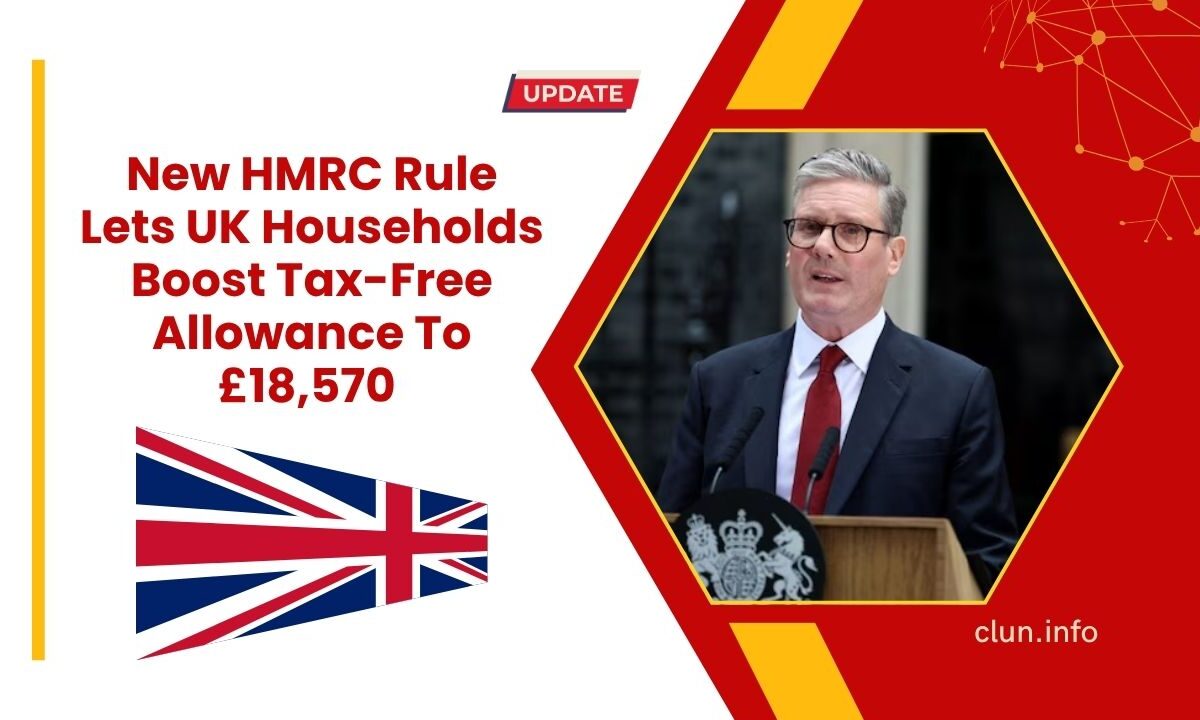With the cost of living crisis continuing to affect UK households, a little-known tax break from HMRC is making headlines for all the right reasons.
This new rule allows qualifying individuals to earn up to £18,570 tax-free, combining the standard Personal Allowance, the Starting Rate for Savings, and the Personal Savings Allowance.
This change is especially beneficial for low-income earners, pensioners, and people with modest savings. In a time when every pound matters, understanding and using this tax rule could lead to substantial savings.
What Is the Tax-Free Allowance?
Most people in the UK already benefit from a £12,570 Personal Allowance, which is the amount of income you can earn each year without paying income tax.
However, what many don’t know is that you can increase this threshold to £18,570 using a combination of additional allowances.
This expanded allowance is available thanks to:
- Starting Rate for Savings – up to £5,000.
- Personal Savings Allowance – £1,000 for basic-rate taxpayers.
If your total income from salary, pension, and savings is less than £18,570, you could pay zero tax on all of it.
Who Is Eligible?
The new HMRC rule is not automatic, and eligibility depends on your total income and type of income.
You may qualify if:
- Your total income (excluding savings interest) is below £17,570.
- Your income includes savings interest from accounts like ISAs, fixed-rate savings, or current accounts.
- You’re a basic rate taxpayer or have no earned income.
As your non-savings income increases above £12,570, the starting rate for savings begins to reduce. Once your earned income reaches £17,570, the additional savings allowance phases out.
How the £18,570 Tax-Free Allowance Works
Let’s break it down:
| Allowance Type | Amount | Tax Status | Condition |
|---|---|---|---|
| Personal Allowance | £12,570 | Tax-Free | Applies to all individuals |
| Starting Rate for Savings | £5,000 | Tax-Free | Income (excluding savings) must be below £17,570 |
| Personal Savings Allowance | £1,000 | Tax-Free | Applies to basic-rate taxpayers |
| Total Tax-Free Income | £18,570 | 0% Tax | For those with low total income |
Real-Life Examples
Example 1: Cheryl – No Income from Work
- Savings income: £20,000
- Earned income: £0
- Cheryl pays tax only on £1,430 of her savings. Here’s why:
- First £12,570 is covered by Personal Allowance
- Next £5,000 by the Starting Rate for Savings
- Further £1,000 by the Personal Savings Allowance
- Total tax-free: £18,570
- Tax paid: £286 on the remaining £1,430
Example 2: John – Earns £16,000, Has £200 in Savings Interest
- Earned income: £16,000
- Savings interest: £200
- After using his £12,570 Personal Allowance on wages, he has £3,430 left.
- This reduces his Starting Rate for Savings to £1,570 (£5,000 – £3,430).
- He pays zero tax on his £200 savings interest because it falls within this band.
How to Claim the Tax-Free Interest
You don’t usually need to do anything if your bank or building society does not deduct tax. However:
- If your interest is taxed incorrectly, submit a R40 form to HMRC to reclaim it.
- For ongoing cases, you can also adjust your tax code through your Personal Tax Account.
- Keep a record of your income and interest received for each tax year.
Important Notes
- This rule does not apply to high-rate taxpayers, as their Personal Savings Allowance drops to £500.
- The Starting Rate for Savings is not available if your earned income exceeds £17,570.
- Your bank does not automatically track this – it’s your responsibility to claim it if you’re eligible.
Why This Matters
With interest rates on savings accounts rising in recent years, more people are earning noticeable amounts of interest. For those on low incomes, this new HMRC rule is a powerful way to protect their savings from tax and boost disposable income.
The new HMRC rule enabling households to earn up to £18,570 tax-free offers a valuable financial cushion during uncertain times.
If you’re on a low income or rely on savings interest, now is the time to review your earnings and make sure you’re not paying tax unnecessarily. Take control of your finances and make the most of every pound with this hidden HMRC tax perk.
FAQs
Do I need to apply for the £18,570 tax-free allowance?
No formal application is needed if your bank does not deduct tax. However, if tax is deducted, submit an R40 form to HMRC.
Can pensioners benefit from this rule?
Yes. If your total pension income and savings interest fall under the threshold, you can claim this allowance.
What if I earn exactly £17,570 in wages?
You’ll only get £1,000 Personal Savings Allowance; your Starting Rate for Savings will be reduced to £0.
